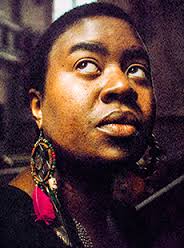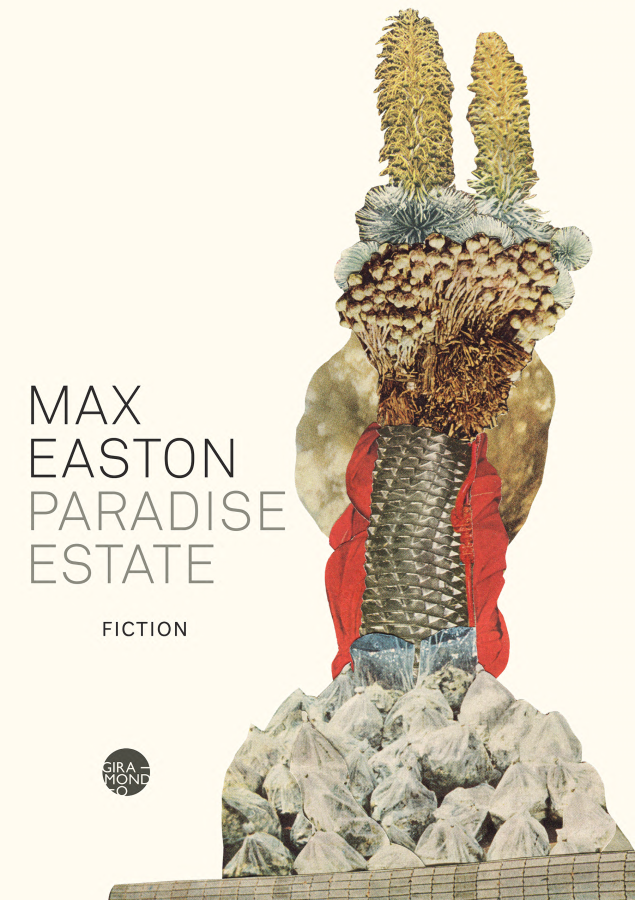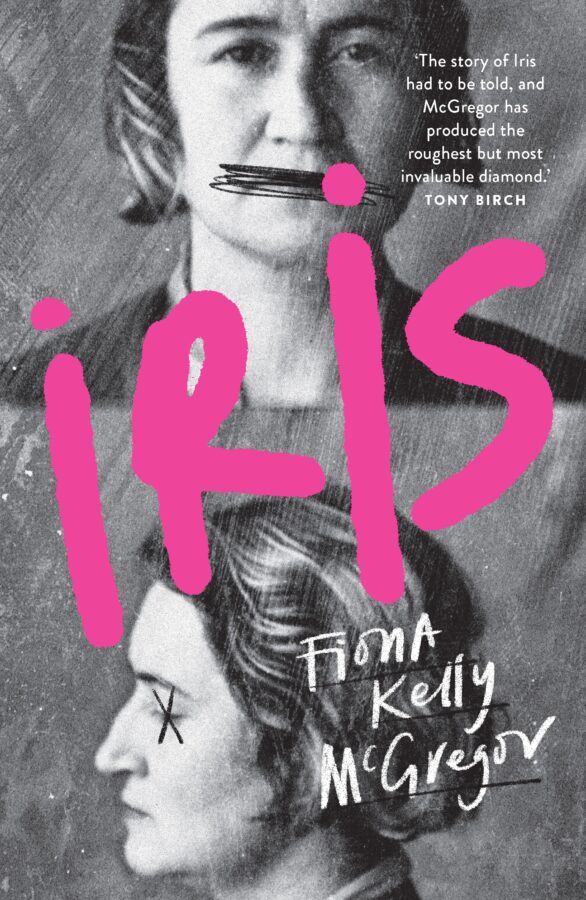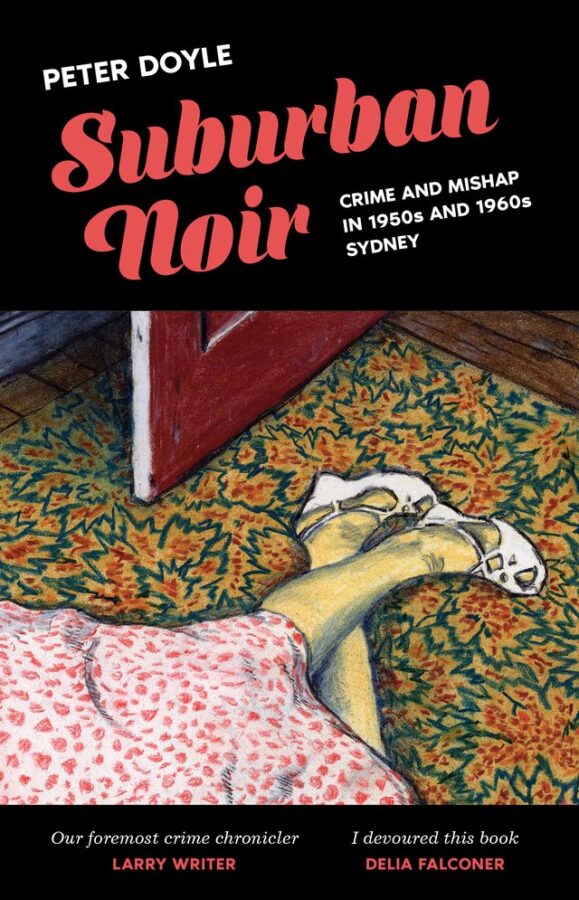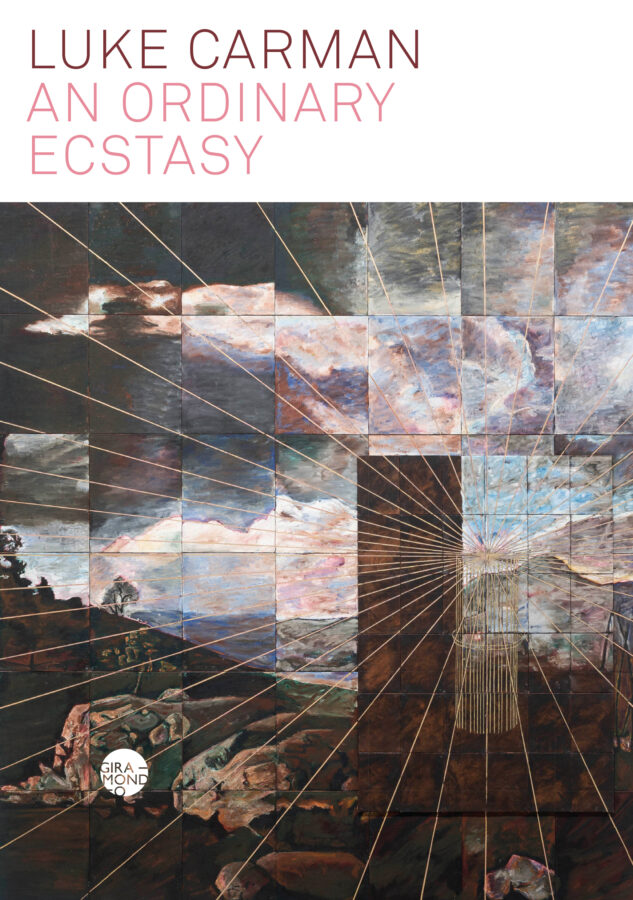Wharf Theatre, Walsh Bay
Sydney Writers’ Festival
24 May 2014
The Wheeler Centre, Melbourne
Emerging Writers’ Festival
30 May 2014
A string of gang rapes take place across the western suburbs. The perpetrators are identified as muslims, arabs, middle-easterns, westies. Their victims are identified as non-muslim aussies. The crimes divide Australia. A leb, a wog and a bogan emerge. They are writers. They will tell their story. They don’t care that no one wants to hear it, because they are three jerks.
Everything I have read about Three Jerks has implied the spoken word show is a testosterone fuelled Trainspotting meets Skins meets A Clockwork Orange meets This is England – an exploration of racial unrest, set against the backstreets of Sydney’s outer-west. The show has travelled on from its critically acclaimed debut at the Sydney Writers’ Festival, and roughly a hundred people are now packed into a room in Melbourne’s Wheeler Centre for Books and Ideas for a one-off showing as part of the Emerging Writers’ Festival, waiting to see if it lives up to the hype.
Three microphone stands rise soldier-straight from the elevated black stage. In front of each is a low table with an unopened bottle of Mount Franklin. A luminous map of Australia is mounted centre-stage, overlaid with the Lebanese flag and the words ‘Under New Management’ in thick black lettering. The image is replicated from a video, now seared into Australia’s cultural consciousness, which was uploaded to Youtube in the aftermath of the infamous western Sydney gang rapes of 2000. The video, purportedly made by a gang operating out of Granville High School, glorified convicted rapist and instigator Bilal Skaf, and talked up gang and gun violence among Lebanese-Australian youth.
Having read interviews with the creators of Three Jerks, I am aware that a primary aim of the performance is to create a new dialogue around the issues of race and representation in western Sydney. It seeks to explore race relations in that much maligned and misrepresented area in a manner that befits the complexities of multicultural Australia, and to dismantle the caricatured images that are often proliferated by the mainstream press. As the audience chatter dulls to a whisper, I ponder whether the horror this deliberately confronting image conjures is the best way of greeting an audience.
Michael Mohammed Ahmad, Peter Polites and Luke Carman suddenly appear on the stage, dressed in black pants and jackets, white shirt collars peeking though. Carman, the author of An Elegant Young Man (2013), recently named a Sydney Morning Herald Young Novelist of the Year, takes centre. His broad shoulders and square frame tower over the audience. His permanently furrowed brow and quiet watchful eyes are simultaneously apathetic and unsettling. To Carman’s right is the smaller-framed Ahmad, author of The Tribe (2014) and founder of Sweatshop, the western Sydney literacy movement from which Three Jerks was born. Ahmad is shiny-eyed, wired; he radiates tightly-coiled energy. Stage left is the sturdy and compact Peter Polites, editor of Ornaments from Two Countries: GLBTIQ Stories of Difference from Western Sydney and Regional New South Wales (2013). He has an inexplicably endearing standoffishness and a serious stare, black hair cropped close to his head.
Ahmad, Polites and Carman’s joint physical presence on the stage, shoulder to shoulder, immediately sets the atmosphere for machismo en masse. Polites bows his head toward the script on the stand in front of him, almost as if in prayer, starts speaking in a matter-of-fact near-monotone. The impact of this is at once confusing and disarming. This is bare prose, raw prose, no-props-or-physicality-or-theatrics prose. We are at once thrown into a steady narrative, with little time to acclimatise.
Polites’ protagonist ‘Peter’ is guiding us insistently through the grimy but familiar western Sydney streets. We pass an interracial queer couple, arguing over the price of loafers in a discount store. The young Greek man pulls us into his parents’ lounge room, where his black-clad mother and father are mourning the passing of another friend. We watch Peter’s father leave the room momentarily, step into the yard to pee on his favourite lemon tree. His old man returns to lament the images he has been watching on the news all day: media bite after media bite of the empty Lakemba mosque and the surrounding silent streets. ‘How do you know him?’ Peter asks his father of a Muslim friend who appears on the screen. ‘His son raped those girls,’ comes the sombre reply.
We are at once, all of a sudden, there: in the belly of the beast, watching its red heart pulsating. In one sentence, Polites has sliced cleanly through the sensation, splayed open the quiet despair of a generation of grieving fathers who fear their sons may become what they themselves have run from. Just several minutes in, Polites has dissipated any defensiveness or assumptions aroused by the confronting opening image.
Polites’ writing is unpretentious, spare, sharp. Peter’s voice is raw, casual, genuine. This is urban storytelling at its best: poured straight up, slammed down on the counter, slung down with a grimace, its liquid warmth slowly spreading. Polites employs quirky and unexpected humour to offset the grittiness. ‘I knew a poofter once, in the army,’ Peter’s father says. ‘He was always looking for his wallet.’ Peter responds off-handedly, asking: ‘Have you seen my wallet?’ The unspoken, obvious implication hangs in the air between them. No more need be said about the challenges of being a child of Greek migrants, growing up queer in Sydney’s outer west. Polites’ underplaying of personal politics is exquisite: he gives us just enough tension that we start bracing ourselves for conflict, then moves us back out into the streets. There is no time to muse about discomfort, just a stoic getting on with life.
Next Polites ushers us into the sex-shop where his protagonist Peter works. He sandwiches us up against the wall, between Peter and a poster of Pamela Anderson, grinds Peter against us, pushing us so far against the shop door we can see its ‘hairline cracks’ and ‘uneven brush strokes’, feel his hot urgent breath on the backs of our necks. Ahmad and Carman create a sound-scape beneath the sex-shop scene, thickening the air, heavy-breathing in unison into their microphones.
At various points throughout the show, each of the three performers will momentarily interrupt their monologues to interact like this. When Polites lists what distinguishes the ‘lebs’ and ‘wogs’ from the ‘aussies’, the three men speak in unison, loudly barking their words: ‘wage monkeys … everything we grow we eat … wife beaters!’ This belligerent three man chorus is powerful, startling. I find myself searching for these moments of interaction between the performers.
Ahmad’s and Carman’s stories weave in and out of Polites’ tale, though always on the periphery. In the shoe store, Peter is questioned by an Aussie about his background. He replies that he is from Belmore. When Mohammed – Ahmad’s character – walks into the store wielding the same question, Peter replies that he is Greek. This succinctly highlights the difference in the way these characters interact with anglo Australia, as opposed to those with shared lived experience in ‘Ethnia’, and captures the way marginalisation can be unifying.
Carman’s ‘Luke’ is an ambivalent anti-hero similar to the protagonist in his debut fiction book An Elegant Young Man (think Richard Wright’s Bigger Thomas meets J.D. Salinger’s Holden Caulfield), and the writer tempers his character’s detachment with off-beat humour. The centrepiece of this second monologue is an encounter with the local police. ‘What the fuck is that?’ a cops asks, frisking Luke after a chase, pulling something from his pocket. ‘It’s a hanky,’ Luke replies. For a few seconds, the cop is utterly bemused. Then we are roughly manhandled into the back of a paddy wagon, watching the asphalt and tar of Western Sydney drop away behind us: ‘… Milperra Road, the Hume Highway, Bankstown Station …’
In a holding cell, Luke sees his mate Mohammed being subjected to violence and belittling, while the cops simply call Luke’s mother to the station and give her a standard lecture about keeping him on the straight and narrow in the wake of the recent gang rapes. Luke’s distressed reaction to the treatment of his friend is met with little sympathy from his mother, who leaves her teenage son to unwind at home after the ordeal with a couple of beers. Like Polites, Carman’s underplaying of tension is the key to the devastating impact of his themes. We are left with the distinct impression that such brazen institutionalised racism is just a regular part of outer-suburban Australian life.
Carman’s delivery is urgent and rapid-fire, much of his speaking mumbled or spat. While this suits the jumpy stream-of-consciousness writing style, it is difficult to catch more than two thirds of the spoken monologue. Given the unique, funny and un-precious turn of phrase in An Elegant Young Man – ‘I wanna see people crammed in together like chunks of fish in a tuna can. That oughta cure all the loneliness that’s going around … I used to date a girl who believed that everything that ever happened or would happen had already happened in Seinfeld’ – this is immensely frustrating. I have marvelled at Carman’s work on the page: the effortless jumps and bizarre associations from thought to thought, the almost painful accuracy with which he describes his characters:
spit shot out of the gaps in his teeth as he raged at her … He took off his shirt and stood, all olive-fleshed and tensed, covered in patches of wolf-thick hair … He was elegant and lanky with a cherub’s face, like every other Sudanese boy I’d ever seen …
I can’t help lamenting the lack of a few performance concessions – slower pace, clearer annunciation – which would have given Carman’s prose the airing it undoubtedly deserves.
Michael Mohammed Ahmad is charged with the epic task of rounding off Three Jerks. Having recently read Ahmad’s debut fiction book The Tribe, I am curious to see how his work, which consciously shies away from dialogue on the page, will translate to the stage. The Tribe introduces us to a Lebanese-Australian family through the gaze of Bani, a young boy aged seven, nine and eleven respectively in each section of the book. The author explores the complex familial relationships between the book’s many characters, who all reside under one roof, sharing happiness and heartache, sorrows and sandwiches.
A day in The House of Adam is a day in my blood – it stays with me forever … Bilal, Yocheved, Lulu and I have to negotiate who gets to play in our bedroom during the day, but it becomes everyone’s at night. Our cousins Eve and Lulu sleep in our bedroom too … On nights that my cousins sleep over we stay up talking until the sun rises and on nights when my siblings and I are alone my dad reads us a prayer and gives me the Qur’an to keep safe.
We meet Ahmad on a city-bound train from Lakemba station, skylarking with his mates and Samantha, a local girl they have coaxed along for the ride. Ahmad’s character Mohammed is an intriguing mixture of bravado and uncertainty, empathy and resentment. He is constantly on the phone bickering with his on-off girlfriend Benita. He is both outwardly admiring and inwardly critical of his mates, and unsure of his romantic capabilities. While churning inner conflict sits uneasily on the young protagonist of The Tribe, in Three Jerks Ahmad wears it comfortably in character as Mohammed.
Ahmad has a knack for contrasting pop culture with tradition. In The Tribe, a poster of Elvis – who, young Bani muses, looks like his uncle – inexplicably hangs on the wall in the House of Adam, his family home. Bani and his cousin’s revered collection of Sylvester Stallone-style action movies is also juxtaposed with the contemplative traditions of the old world. Ahmad employs similar overlaying in Three Jerks. Travelling from Lakemba, Mohammed and his mates end up at the George Street cinemas, at a showing of American Pie (1999). This hyper-sexualised teen comedy provides a backdrop to Mohammed’s mate Sheikh’s seduction of Samantha, and her crestfallen response to the immediate rejection which follows: ‘How could you use me like that?’ Ahmad’s angst continues on from cinema setting to the schoolyard, through frequent calls from his girl Benita, culminating in excruciating accusations by his mates (‘We all got head jobs off her’) and a fight in the school oval, where the other performers hammer out an apt footy game chorus together in the background (‘Pass! Fucken pass!’).
The gang rapes that took place in western Sydney are very much a framing device. The event is ever-present, but on the periphery of the three protagonists’ very different but intersecting lives. This backdrop contributes to the eerie imbalance that is created by the lack of female voices. This may well have been the intention of the writers: it is flagged from the beginning that these are three ‘jerks’, who will push their stories on the audience whether or not the audience wants to listen. The characters, though, are not ‘jerks’ in any sense – they are not uncaring or unthinking, but complex, charismatic and (at times) caring.
This makes the dearth of female voices all the more marked. The women of Three Jerks stare at us from the wings, aching to stride out and seize centre stage: Carman’s mother, apathetic in the police station; Polites’ mother, mourning in her lounge room; Ahmad’s on-off girlfriend, interrupting his afternoon with persistent phone-calls. There are fleeting moments when our gaze is turned to the women of western Sydney: in particular, Ahmad’s observation of Samantha, and her feigned indifference to being used by Sheikh – who has ‘eyes so green girls stop to ask “What was your name again?”’ – is extraordinarily nuanced.
Throughout most of the performance, though, interjecting female voices are silenced, most often with a pared-back physicality – the hanging up of a phone, the substitution of a male performer’s voice, where a recording of a female voice could easily have been utilised to lessen the silencing effect. The result is that while cross-cultural male friendships amongst western Sydney youth are skilfully and thoughtfully dissected, interactions between young men and women in that same world are not as roundly explored. A full exploration of the atmosphere and circumstances surrounding of the central gang rapes does not eventuate, and for most of the story-telling we are left with a group of young men from the western suburbs, championing their own voices ahead of those of their female counterparts.
The voices and stories of Ahmad, Polites and Carman work incredibly well together to create an interwoven picture of the lives of these young men in the suburbs of their youth. In this respect, Three Jerks cuts through the homogeneity of media images by introducing us to characters from distinctly different backgrounds, occupying the same streets and engaging in different ways. Three Jerks is not the high energy, slam-poetry style, theatrical performance work I was expecting from the show’s blurb, or its trailer, which shows a trio of hooded youths running through the streets of western Sydney under cover of darkness, but as a rehearsed reading, it is engaging, insightful and eye-opening.
Three Jerks grew out of the Sweatshop: the Western Sydney Literacy Movement founded by Michael Mohammed Ahmad and operating out of the University of Western Sydney. Sweatshop has become a respected literary training ground, a hub for young local writers, and somewhat of a discovery ground for new voices, particularly for Giramondo Press, which has published both Carman and Ahmad, and also operates out of the University of Western Sydney.
Two days after watching Three Jerks, I find myself sitting in on an Emerging Writers’ Festival session at the Melbourne Town Hall, listening to Luke Carman and fellow Sweatshop member Stephen Pham speak about the collective. ‘I shouldn’t really have a book,’ Carman confesses to the eager crowd, in his fast-talking, swallowing-half-his-words way, the sentence ducking and swaggering so the ear strains to catch it:
It’ll probably never happen again. That’s just kind of, y’know, what Sweatshop and Ivor Indyk and Giramondo are about with this … giving people the chance to get their book out that normally wouldn’t be able to. I mean, it’s crazy that I have a book, really.
Carman shrugs his shoulders, as if the whole writing and publishing caper has been a strange, and possibly mistaken, turn of events. He seems genuinely baffled to be sitting before an audience. His comments are engagingly honest, but given the brilliance of his debut fiction book and the success of Three Jerks, I also find them a little heartbreaking.
The two writers speak of camaraderie, community, solidarity – of how it feels to finally write their playground, the western suburbs of Sydney, with its colour and multiculture, its speed and subtlety, its boldness, bitterness and bravado, onto our shelves and into Australia’s collective consciousness. As a person of colour who spent the first eighteen years of my life growing up in the cultural wasteland of a different – but not too distant – part of western Sydney, it is difficult not to become emotional. There is strength, surety and solidarity in numbers, in knowing where you come from, in standing together and demanding to be heard.
There seems, however, to be a somewhat defeatist sentiment amongst the Sweatshop writers, one I have long struggled to conquer myself – a pre-emptive assumption that their point of view, their experiences, as people writing from the margins, will forever be sidelined by the mainstream, that they do not really belong there. It is a fallacy that they – we – must shake off. These writers, and the Sweatshop Collective, deserve the widest dissemination of their work available. Carman, Polites and Ahmad are not ‘outsiders’ of Australian literature; they are Australian literature.
At the start of Three Jerks, when Polites turned a page of the script he was reading from, Ahmad and Carman also turned the pages of their own scripts, following along. Each man raised only his right hand, in a quick and certain sweep. This page turning in unison continued throughout the show. It is this image that keeps coming back to me long after the three jerks have disappeared down the platform of Bankstown station in their fake Nikes and black hoodies: the Sweatshop crew, shoulder to shoulder, turning pages together. Buckle in tight, ’cause we’re heading for the Hume: Australian literature is indeed ‘Under New Management’.
